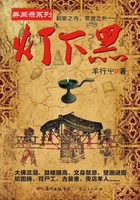His Prince Arthur, or whoever he intends by him, is a Trojan. Thus the hero of Homer was a Grecian; of Virgil, a Roman; of Tasso, an Italian.
I have transgressed my bounds and gone farther than the moral led me; but if your lordship is not tired, I am safe enough.
Thus far, I think, my author is defended. But as Augustus is still shadowed in the person of AEneas (of which I shall say more when I come to the manners which the poet gives his hero), I must prepare that subject by showing how dexterously he managed both the prince and people, so as to displease neither, and to do good to both--which is the part of a wise and an honest man, and proves that it is possible for a courtier not to be a knave. I shall continue still to speak my thoughts like a free-born subject, as I am, though such things perhaps as no Dutch commentator could, and I am sure no Frenchman durst. I have already told your lordship my opinion of Virgil--that he was no arbitrary man. Obliged he was to his master for his bounty, and he repays him with good counsel how to behave himself in his new monarchy so as to gain the affections of his subjects, and deserve to be called the "Father of His Country."
From this consideration it is that he chose for the groundwork of his poem one empire destroyed, and another raised from the ruins of it. This was just the parallel. AEneas could not pretend to be Priam's heir in a lineal succession, for Anchises, the hero's father, was only of the second branch of the royal family, and Helenus, a son of Priam, was yet surviving, and might lawfully claim before him. It may be, Virgil mentions him on that account.
Neither has he forgotten Priamus, in the fifth of his "AEneis," the son of Polites, youngest son to Priam, who was slain by Pyrrhus in the second book. AEneas had only married Creusa, Priam's daughter, and by her could have no title while any of the male issue were remaining. In this case the poet gave him the next title, which is that of an Elective King. The remaining Trojans chose him to lead them forth and settle them in some foreign country. Ilioneus in his speech to Dido calls him expressly by the name of king. Our poet, who all this while had Augustus in his eye, had no desire he should seem to succeed by any right of inheritance derived from Julius Caesar, such a title being but one degree removed from conquest: for what was introduced by force, by force may be removed. It was better for the people that they should give than he should take, since that gift was indeed no more at bottom than a trust. Virgil gives us an example of this in the person of Mezentius. He governed arbitrarily; he was expelled and came to the deserved end of all tyrants. Our author shows us another sort of kingship in the person of Latinus. He was descended from Saturn, and, as I remember, in the third degree. He is described a just and a gracious prince, solicitous for the welfare of his people, always consulting with his senate to promote the common good. We find him at the head of them when he enters into the council-hall--speaking first, but still demanding their advice, and steering by it, as far as the iniquity of the times would suffer him. And this is the proper character of a king by inheritance, who is born a father of his country. AEneas, though he married the heiress of the crown, yet claimed no title to it during the life of his father-in-law. Socer arma Latinus hebeto, &c., are Virgil's words. As for himself, he was contented to take care of his country gods, who were not those of Latium; wherein our divine author seems to relate to the after-practice of the Romans, which was to adopt the gods of those they conquered or received as members of their commonwealth. Yet, withal, he plainly touches at the office of the high-priesthood, with which Augustus was invested and which made his person more sacred and inviolable than even the tribunitial power. It was not therefore for nothing that the most judicious of all poets made that office vacant by the death of Pantheus, in the second book of the "AEneis," for his hero to succeed in it, and consequently for Augustus to enjoy. I know not that any of the commentators have taken notice of that passage. If they have not, I am sure they ought; and if they have, I am not indebted to them for the observation. The words of Virgil are very plain:-
"Sacra suosque tibi commendat Troja Penates."
As for Augustus or his uncle Julius claiming by descent from AEneas, that title is already out of doors. AEneas succeeded not, but was elected. Troy was fore-doomed to fall for ever:-
"Postquam res Asiae, Priamique evertere gentem, Immeritam visum superis."--AENEIS, I. iii., line 1.
Augustus, it is true, had once resolved to rebuild that city, and there to make the seat of the Empire; but Horace writes an ode on purpose to deter him from that thought, declaring the place to be accursed, and that the gods would as often destroy it as it should be raised. Hereupon the emperor laid aside a project so ungrateful to the Roman people. But by this, my lord, we may conclude that he had still his pedigree in his head, and had an itch of being thought a divine king if his poets had not given him better counsel.
I will pass by many less material objections for want of room to answer them. What follows next is of great importance, if the critics can make out their charge, for it is levelled at the manners which our poet gives his hero, and which are the same which were eminently seen in his Augustus. Those manners were piety to the gods and a dutiful affection to his father, love to his relations, care of his people, courage and conduct in the wars, gratitude to those who had obliged him, and justice in general to mankind.















